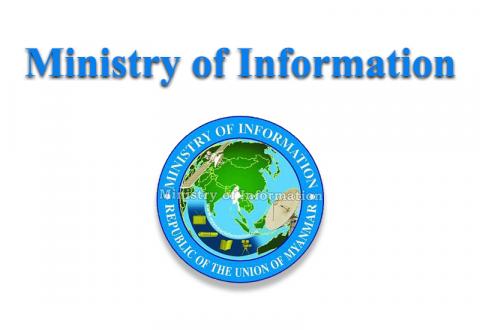Maintain the fine traditions of Myanmar’s literacy campaign
MYANMAR successfully showed off its brilliant endeavours in implementing the literacy campaign with mass participation in central Myanmar in the 1960s. Among international literacy initiatives, Myanmar’s efforts in promoting literacy have been historically prominent. During the colonial period, literacy rates declined due to adverse circumstances. As a result, literacy programs were carried out actively under the leadership of UNESCO, achieving notable success.
In Myanmar, the Mass Education Council Act was enacted in 1948 to carry out adult literacy programmes from 1948 to 1958. In addition, starting in the summer of 1964, a four-year literacy campaign was implemented to provide 3-Rs, such as writing, reading, and arithmetic, for people aged 16 and above who were illiterate, and it was carried out vigorously until 1968.
In 1969, the literacy campaign covering writing, reading, and arithmetic was implemented in the form of a public movement in Meiktila, Thazi, Wundwin, and Mahlaing townships. Teachers from universities and colleges, university students, local teachers, and students from government schools actively participated and contributed their efforts. In 1971, Meiktila District was officially declared a fully literate district. The first International Literacy Day ceremony was held on 8 September 1969, in Mahlaing Township of Meiktila District.
Over 24 years, from 1964 to 1988, a total of 490,398 people participated in teaching across 297 townships. They successfully taught 2,410,979 people to become literate, bringing pride to Myanmar. Under UNESCO, Myanmar received the Mohamed Reza Pahlavi Prize on International Literacy Day in 1971 and the Noma Award on 8 September 1983. Donor countries included Iran and Japan, which contributed to the literacy programmes. Continuing these efforts, literacy classes were organized in each township, providing instruction to new learners and helping those already literate to further improve their reading skills.
According to the National Education Strategic Plan (2021– 2030), the Ministry of Education is expanding informal primary and middle school education programmes for children. Basic literacy programmes for illiterate individuals are also being implemented annually. In line with the changing needs of the country, learners have to complete the (KG 9) education scheme to have a better future.
Literature is the wisdom that allows one to critically examine both good and bad, as well as causes and effects. If one becomes literate, they can act for the benefit of themselves and their countries, leading to overall progress and development. Therefore, UNESCO has designated International Literacy Day (ILD) to be celebrated under the theme: “Promoting literacy in the digital era”.
#TheGlobalNewLightOfMyanmar

